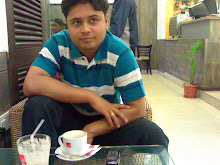Pulled up at the traffic lights the other day to be confronted by the usual tribe of beggars tapping on the window.
They are everywhere in this metropolis - at traffic signals, peering into taxi windows, bedraggled, haggard and breaking into a sudden smile when a few coins are dropped into their palms.
And it is these coins, given perhaps out of exasperation or a momentary flash of pity that add up to a staggering Rs 180 crore a year, which is the figure the government estimates that the three lakh beggars in Mumbai earn every year.
Those working in the field, however, say this figure is very difficult to verify independently, given the fluid nature of the population of beggars. They also point to the fact that a lot of begging in India is "commercial", run by gangs who use children to beg.
"There are many categories of beggars in India. Most of them are children, some of whom are used by gangs and coerced into begging," says Vijay Raghavan of the Tata Institute of Social Sciences that works with beggars on a regular basis.
"This is commercial begging and many a time, it is the family of the child that gets him into this."
Maharashtra government told the state legislative council that beggars in the city earn a whopping Rs 180 crore a year and that the number of mendicants had risen from 20,000 in 1963 to three lakhs at present.
"It would be difficult to come up with those kind of figures when the begging population in the city keeps changing. There are occasional beggars, those who are in the daily wage business and take to begging when the going is tough. There are also immigrants who come in search of jobs and then take to begging," says Raghavan.
Analysts, however, agree that begging sometimes proves a more lucrative option than working in a low-wage job.
"I know of beggars who were put in homes and given jobs but who have left and gone back on the streets because the job is not enough to sustain them and their families," says Armaity Desai of Childline, a helpline that works with street children.
"Begging is quite lucrative in Metropolitans, especially at places like airports and places of worship like temples where people are hounded for alms," she says.
Instead of giving to beggars indiscriminately, Indian residents should donate to a place where they will know how their money is being used.
But let me say - is it not shameful for the country to have such a huge population of beggars. Is it not the duty of the government to take some initiative for them and above all, is it not our duty to make them literate and capable enough to live a satisfactory life.
They are also human just like us, they also have the right to live and more over we all are Indians, so can't we do something for them, some initiative at least.
At least one out of four Indians is steeped in poverty. That’s one-fourth of one billion people, more than the population of the United States. Nearly half are denied basic education and healthcare. Nearly two-thirds of India’s girl children do not receive any education worth the name. Nearly one-third of the country’s citizens still suffer social discrimination on account of the caste system. In the coming years, can India hope to regain some of its past stature in the comity of nations?
On an average we spend 200 Rs daily just on us for cigarette or beer or other entertaining stuffs; we can also save some of our salary amount for the people like them.
They don’t need mercy, what they need is support. Only giving them few penny wont make a difference in there life style. Proper Counseling, offering them job and making them literate make a difference in there life style. Think about it.






